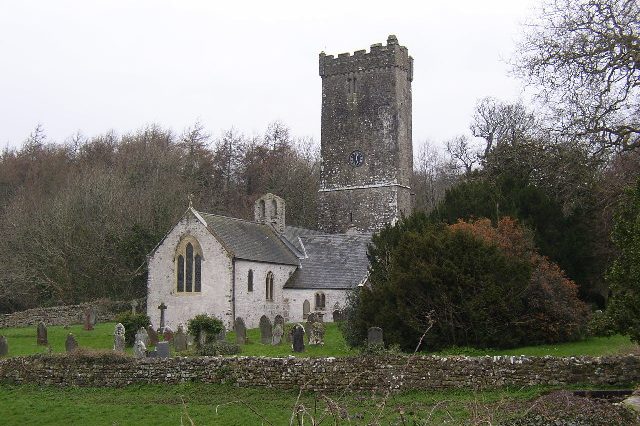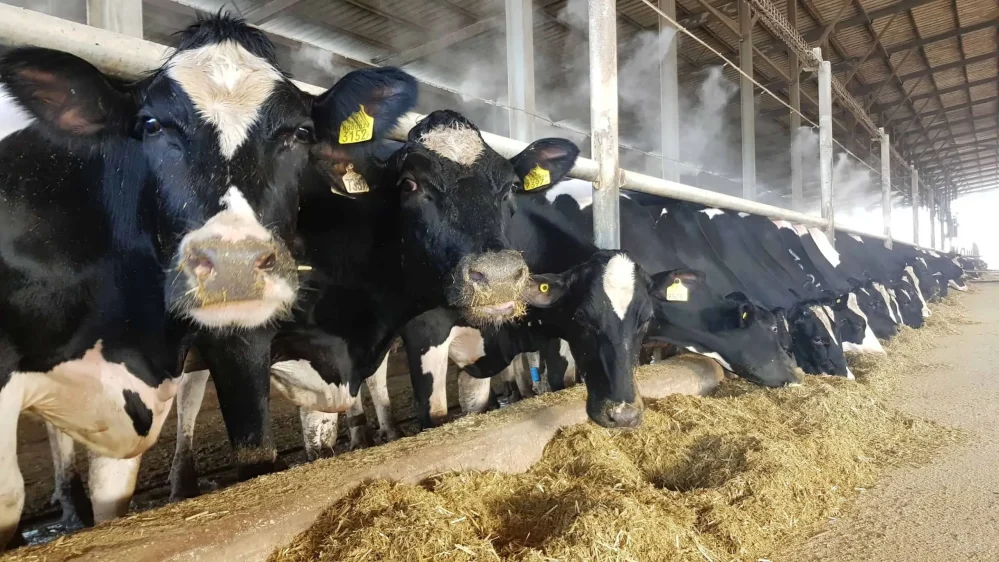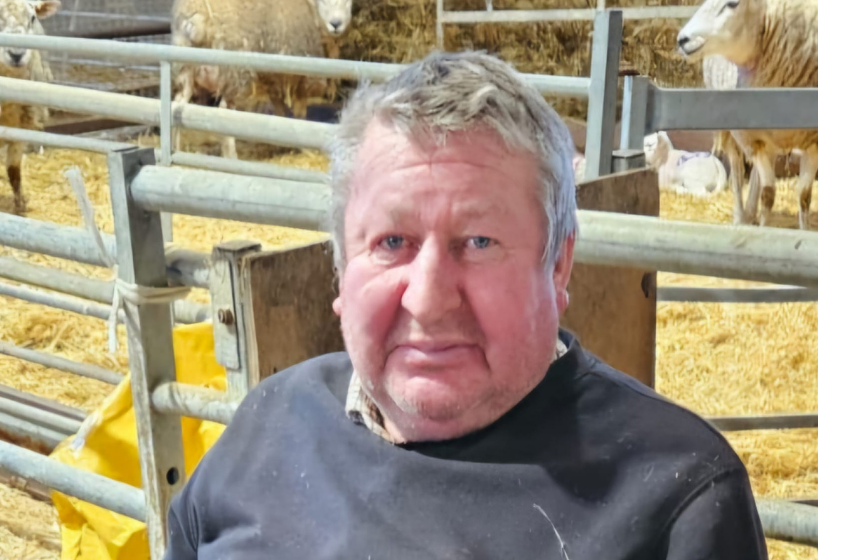Farming
Agriculture Bill passes Commons

THE CONSERVATIVE Party used its Commons majority to ram through its Agriculture Bill on Monday, October 12.
Along the way, it voted down amendments which would have forced Boris Johnson’s government to uphold its manifesto promises on food production standards and animal welfare.
The Government’s actions, combined with its procedural manoeuvre to block an attempt to give a proposed trade watchdog teeth, have drawn universal condemnation from farming unions and organisations.
Fourteen Conservative MPs opposed the Government, including former DEFRA Secretary of State Theresa Villiers. Every Welsh Conservative MP voted against safeguarding farmingstandards.
The Wildlife Trusts of Wales and England described the vote as: “[T]he clearest signal yet that the Government do not intend to uphold their election manifesto commitment to maintain the UK’s high environmental protection, animal welfare and food standards in trade negotiations.”
Phil Stocker of the NSA commented: “There is now the very real risk, despite Government’s assurances, that the UK’s standards that our nation’s farmers are proud to work to, could be undermined by lower standard imports.”
‘DISAPPOINTMENT AN UNDERSTATEMENT’
Speaking to The Herald after the vote, TFA Chief Executive George Dunn said: “To say that the events which took place in the House of Commons last night were a disappointment, would be a major understatement. For the Government to whip its MPs to vote against an amendment entirely in line with its own policy has created a breach of trust in believing its rhetoric around protecting our high environmental, animal welfare and food safety standards in future international trade agreements.”
“It was also shocking that the Government used a procedural manoeuvre to deny MPs the opportunity of voting on a crucial House of Lords amendment that would have improved the operation of the newly appointed Trade and Agriculture Commission,” Mr Dunn told us.
He continued: “This was a shocking piece of political chicanery which prevented MPs from even debating this important piece of legislation. Over a million people signed a petition earlier in the year calling on the Government to ensure the strongest standards in trade and it is an issue for which there has been cross-party support. Expanding the role and remit of the Trade and Agriculture Commission would not, as the Government claimed, tie its hands but merely ensure that its future trade policy had proper scrutiny and support from an expert panel.”
Mr Dunn concluded by drawing attention to the erosion of trust between the Conservative Government and the agriculture industry: “Day after day we hear Government Ministers declare that they will not jeopardise our high environmental, animal welfare and consumer safety standards in trade. Sadly, their words say one thing, but their actions say another. Unless we have strong legislation in this area, the fine words are just empty promises.”
‘WARM WORDS WON’T WASH’
Carmarthen East & Dinefwr MP Jonathan Edwards told this newspaper: “The Agriculture Bill was a missed opportunity to safeguard in law food product standards and in particular food production standards.
“Warm words from the British Government that they won’t allow Welsh farmers to be undercut by lower standard food in trade deals won’t wash.
“The fact that the British Government have gone out of their way to stop democratic accountability over trade deals does not fill me with confidence.
“Wales should have a veto over trade deals negotiated by the British Government in the same way that every single member of the European Union could veto trade deals negotiated by the EU.
“The reality is that the future of Welsh farming is in the hands of a British Government who I fear will be conceding access to food markets in order to gain concessions for London banks.”
NFU DISMAY
NFU Cymru expressed dismay but vowed to continue lobbying for binding commitments to safeguard farming’s high standards in future trade deals
NFU Cymru Deputy President Aled Jones said: “It is a blow that the Grantchester amendment (on animal welfare) was not adopted by a majority of MPs, nor did MPs have the chance to vote on the Curry amendment (strengthening the Trade & Agriculture Commission). However, NFU Cymru remains steadfast in its belief that Welsh farmers must not be undermined by imported products produced to lower standards than those observed here in the UK.”
Adopting an upbeat approach which suggested NFU Cymru was prepared to take government promises and MPs’ words at face value, Mr Jones continued: “We were encouraged to hear so many MPs in last night’s debate expressing their support for those high standards – standards that consumers in this country have come to expect – and we thank those MPs who spoke up in favour of this important cause.
“This ongoing debate around food standards is matter of a huge importance for Britain’s farmers and Britain’s consumers, also. We simply cannot risk any trade scenario which could result in food imports coming into this country that would be illegal if produced here.”
Looking forward to the next stage of the Bill’s passage to the statute books, Aled Jones added: “With the Agriculture Bill set to return to the House of Lords, this gives peers another opportunity to put forward amendments that we hope will bring about the changes we want to see – UK farming’s high standards protected and enshrined in law, while also giving more power to the elbow of the Trade and Agriculture Commission.”
LACK OF COMMITMENT ‘SPEAKS VOLUMES’
Plaid Cymru’s Shadow Rural Affairs Minister, Llyr Gruffydd MS, told us: “Last night, Plaid Cymru supported amendments that would have protected food standards in future trade deals and strengthened parliamentary scrutiny of trade negotiations.
“Yet again, the Conservatives let down Welsh farmers when given the chance to protect their livelihoods. Despite all their promises and manifesto commitments, the Government defeated the amendments, exposing our farmers to cheap produce in future trade deals.
“Plaid Cymru will continue to put forward a positive vision for our food producers based on a greater say for our devolved governments and the protection of food standards. This is not because we not only believe them necessary now, but because they are fundamental to our farmers and food producers in the future.”
Lesley Griffiths, Wales’ Minister for Rural Affairs, said: “Although UK Ministers continue to insist they will maintain existing high standards of food safety and animal welfare in any new trade deals, their rejection of the opportunity to put this commitment into statute speaks volumes – especially given the fact that the amendments put forward by the Lords gave them a prime opportunity to do so.
“Food safety and welfare are devolved matters, and we have been clear that we would resist any clauses in the Internal Market Bill which would allow Westminster to start a race to the bottom in terms of standards – a move which would not just impact consumers, but also risk farm businesses across Wales as they face international competition from companies willing to forego the standards to which they adhere.”
WIDER REACTION
Prominent farmer and TV presenter Gareth Wyn Jones tweeted: ‘Very disappointed this morning after last night’s government defeated amendments to the #AgricultureBill which would have protected our #food & #farming standards. Don’t forget they’ve not only sold the farming community out but the health of our nation. @BorisJohnson’
Conservation groups and environmental campaigners also expressed their concern at the government’s unwillingness to commit to anything more than warm sentiment over environmental standards and welfare measures.
The RSPB said: “The UK Government must now say how it will meet its manifesto commitment to maintain standards in future trade deals, as confidence in them to do so is now at a chronically low ebb.”
RSPCA Chief Executive Chris Sherwood also underlined the Government’s failure to put meat on its manifesto promise.
Chris Sherwood said: “The Government once again failed to make good their manifesto promise that they will not sell out the UK’s animal welfare for a quick trade deal. The vote shows a disregard for the British public, 83% of whom said they did not want lower standard imports coming in from the US when we leave the EU.”
Nature Friendly Farming Network UK Chair, Martin Lines, observed: “Despite manifesto commitments and repeated assurances from successive governments not to lessen standards in trade, the government has instead passed on one of the final opportunities to enshrine our high-quality environmental and animal welfare standards in law and to protect the UK farmingindustry.”
James Russell, BVA President, said: “This result is a severe blow for animal welfare and a betrayal of the Government’s own manifesto commitment to maintain and improve on health and welfare standards.
“We have long argued that the UK cannot commit to raising the bar domestically while allowing in goods that don’t meet the high standards that British consumers rightly want and expect.
“If the government won’t legislate to protect our standards it is vital that the Trade and Agriculture Commission is given more powers and stature to safeguard them in future trade deals.”
CLA President Mark Bridgeman sounded a warning note: “Government Ministers have successfully convinced MPs they can be trusted to protect food production standards without the need for legislation.
“Time and again Ministers have promised to protect British farmers from a flood of cheap imports produced to animal welfare and environmental standards far below our own.
“Farmers across the country will be watching Government’s every move very closely from hereon in.”
Farming
Farm building scheme near Lawrenny given go-ahead by planners

AN APPLICATION for a storage building at a south Pembrokeshire farm, made by a family member of an officer on Pembrokeshire County Council’s planning service, has been given the go-ahead by the authority’s planning committee.
In an application recommended for approval at the July 23 meeting of the authority’s planning committee, Laura Elliot sought permission for the erection of an agricultural storage building at Tedion Farm, a dairy farm near Lawrenny.
The application had been brought to committee, rather than being delegated to planning officers, due to the family connection.
The farm, near to the Pembrokeshire coast National Park border, comprises 270 milking cows and dairy heifer replacements kept on the farm comprising land over 138 hectares. The farm is mainly down to grass and the cows are paddock grazed in order to utilise grass efficiency.
No objections had been received from local community council Martletwy.
A report for members said: “The application seeks consent for the erection of agricultural storage building. The erection of an agricultural building will be used to store stay, hay and farm machinery.
“The building would be located within the existing farm complex, to the north-east of the site, adjacent to the main farm dwelling. The building will measure 18 metres in length by 13.6 metres in width, with a pitched roof height of 5.71 metres.”
Approval was moved by Cllr Alistair Cameron, seconded by Cllr Brian Hall.
Farming
Fears dairy farm near Kilgetty could increase to 3,000 cattle

PEMBROKESHIRE planners are to visit the site of one of the county’s largest dairy farms after claims were raised a scheme for new calf buildings could lead to animal welfare issues and an increase in the size of the herd to 3,000 cattle.
At the July 23 meeting of the council’s planning committee, an application by Hugh James of Langdon Mill Farms Ltd for a calf building, weaned calf building, and associated yard areas, at Langdon Mill Farm, near Jeffreyston, Kilgetty was recommended for conditional approval.
Local community council Jeffreyston has raised concerns, made by a member of the public, on potential increased noise and odour from the scheme, planners heard.
A supporting statement, through agent Reading Agricultural Consultants, said: “The holding currently has a milking herd of approximately 2,000 cows, which are housed indoors for the majority of the year, with dry cows [cows that are not lactating, prior to calving] and heifers grazed outdoors when weather and soil conditions permit.
“There has been significant investment in buildings and infrastructure at the farm over the last decade in respect of cattle accommodation, slurry storage, milking facilities, Anaerobic Digestion (AD) plant and feed storage. The unit is efficient, achieving yields of more than 10,000 litres/cow/year, with cows being milked three times/day in the 60-point rotary parlour.”
Currently, calves are reared at Langdon Mill Farm for two months before being transported off-site to be reared at a number of third-party farms in the area before being return later; the proposed 61.2m long calf building is required to accommodate young-stock, following separation from the cows, to two-months, with the 164.8m weaned calf building to be used for calves from two months to seven months.
The application says the proposals would “clearly make the enterprise more financially robust by reducing reliance on third party farms”.
However, concerns were raised at the committee meeting by objector Ian Dennis, a former vet of some four decades’ experience, who described Langdon as occupying 3,000 acres of land with 2,000 cattle currently that “are never allowed to graze,” the proposal, he said, would add another 1,000 cattle to the site.
“This is factory farming, an intensive livestock unit, no longer a farm.”
He told planners a “mendacious and incorrect” ammonia emission report submitted by the applicants was “designed to bamboozle,” saying, despite his experience and scientific background, he needed expert support to assess.
He said only average figures were reported, rather than peaks and troughs, adding the “fictitious anaerobic digestion plant” had yet to be built, with planning permission now lapsed.
However, officers told members the applicant’s agent had said works on the digestor had actually started.
On the issue of animal welfare, Mr Dennis said he had “very huge concerns” about the scale of the development, differing from a planning officer report saying the scheme would bring animal welfare benefits.
A suggestion by committee chair Cllr Simon Hancock the application be deferred pending a site visit was unanimously backed by committee members present.
Farming
Family pay tribute to farmer, 65, who died in quadbike accident

A WEST WALES farmer has died after an incident involving a quadbike.
Dyfed-Powys Police have confirmed they attended a report of an incident involving an agricultural quadbike in a field in the Llanilar area of Aberystwyth on July 17.
The force has confirmed that a 65-year-old man died at the scene.
They said that his next of kin have been advised and are being supported by specialist officers. The HM Coroner and Health and Safety Executives have been informed.
His family have paid tribute to him. The family said: “Hugh Tudor was a 65 year old farmer who had farmed at Tynberllan, Llanilar with his wife Ann for over 40 years. He was a devoted father to Sara, Lowri and the late Gwenno.
“Hugh was the son of the late Tom and Sybil Tudor of Glanystwyth and brother to Richard.
“Farming was his life, but he also had a wide range of interests and was actively involved in all aspects of the local community in Llanilar and beyond.
“We would like to thank everybody for their support and kindness during this difficult time.”
-

 Education5 days ago
Education5 days agoMilford Tesco worker achieves Oxford dream and lands top legal job
-

 Crime4 days ago
Crime4 days agoHaverfordwest man admits having nearly 1000 child and animal images
-

 Crime4 days ago
Crime4 days agoYouth set to appear in court over serious sexual offences
-

 Crime4 days ago
Crime4 days agoPolice investigating after man injured during altercation in cemetery
-

 Education4 days ago
Education4 days agoPupils delight in ice cream treat from Pembrokeshire’s number one van
-

 Crime4 days ago
Crime4 days agoTown centre ‘stinking of skunk’ as police strip cannabis farm
-

 Crime3 days ago
Crime3 days agoFag-butt police court summonses spark debate in Pembrokeshire
-

 News6 days ago
News6 days agoProposal to give firefighters a council tax discount to go to Cabinet





























